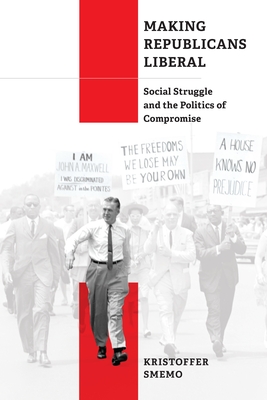Making Republicans Liberal: Social Struggle and the Politics of Compromise

Making Republicans Liberal: Social Struggle and the Politics of Compromise
Mass movements and social protest forced mid-century Republicans to articulate their own form of liberalism As poor and working people organized themselves on the job, in the streets, and at the polls during the mid-twentieth century, they forced Republicans to reckon with new demands for political and social citizenship in big cities across the Northeast, Midwest, and Pacific Coast. While rightwing Republicans mobilized to crush those movements, Making Republicans Liberal explores how another wing of the party responded to intensifying mass movement pressure. Beginning in the 1930s, Republican governors such as Earl Warren of C
PRP: 438.73 Lei
Acesta este Prețul Recomandat de Producător. Prețul de vânzare al produsului este afișat mai jos.
394.86Lei
394.86Lei
438.73 LeiLivrare in 2-4 saptamani
Descrierea produsului
Mass movements and social protest forced mid-century Republicans to articulate their own form of liberalism As poor and working people organized themselves on the job, in the streets, and at the polls during the mid-twentieth century, they forced Republicans to reckon with new demands for political and social citizenship in big cities across the Northeast, Midwest, and Pacific Coast. While rightwing Republicans mobilized to crush those movements, Making Republicans Liberal explores how another wing of the party responded to intensifying mass movement pressure. Beginning in the 1930s, Republican governors such as Earl Warren of C
Detaliile produsului









